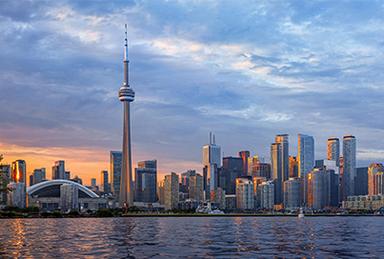09 Jan 2023
If you’re a student hoping to enroll in a prestigious Canadian institution, acquiring your study visa is the most critical thing you can do before you ever board the aircraft. It’s no secret that students worldwide highly seek admission to Canadian universities. Canada is the most popular place to get a degree because of its high-quality educational system, liberal immigration policies, and promising future for its citizens. There were around 621,000 overseas students in possession of a Canadian student visa in 2021, as reported by IRCC. There are over 230,000 Indians applying for Canadian study permits in 2022. The number of student applications being denied in Canada has increased. There was an initial 35% rejection rate for Canadian student visas at the start of Covid-19 in 2019, and the percentage of Canadian student visa refusal rate has risen to 60% as of September 2022. The standard refusal rate of denial in Canada is about 35%, so this is much higher than that. Financial inadequacy, and not being accepted to the desired program or institution, etc are the topmost reasons for Canada student visa rejection. This article discusses the most prevalent causes of student visa denial in Canada and offers advice for those who want to apply for a study permit there.
Reasons why applications for Canadian student visas are turned down
Unstable financial situation
Demonstrating financial stability is critical for any Canadian student hoping to attend university. In most cases, universities in Canada will only accept applications from students who can prove they can support themselves financially for a certain period of time without holding a job. The first year of the course/program must be covered by the regulations. A bank statement from the previous six months and proof of income from any working family members may go a long way toward proving that you have the financial means to get you through the next year. A visa application will be denied if the immigration department has any reason to believe the applicant does not have sufficient funds to support themselves. If you want to study in Canada, you need to submit evidence of sufficient funds and other financial data in your study permit application.
Not having a DLI Acceptance Letter
In order to apply for a study visa in Canada, you will need a letter of acceptance (LOA) from a DLI in the country. A study permit is only available to those who have been admitted to a Canadian Designated Learning Institution (DLI). A DLI is an institution that is authorized to enroll foreign students. Every overseas student must provide immigration authorities with this letter of acceptance from their respective DLIs. In the event that the students do not get the acceptance letter, their study permission would be categorically denied. In order to prevent this problem, applicants should check the legitimacy of the academic institution before accepting any offers made by that organization. This leads us to believe that you should apply for admission to a government institution rather than a private college. This improves your visa prospects.
Poor Program Selection
The study program that you decide to enroll in has a substantial effect on whether or not your application for a study visa will be approved and is one of the top reasons for Canada student visa rejection. The immigration officers pay special attention to whether or not the study program you want to enroll in is compatible with either your future professional goals or your educational history to this point. It is recommended that, if the program you want to enroll in isn’t a natural progression after the education you’ve already received, you make sure that your statement of purpose articulates why you want to enroll in that program and how it will benefit your career.
Having a poor academic track record
Immigration officials will look at a person’s academic history and record to ensure there has been no disruption in studies. They do a comprehensive review of your academic history. In order to apply for a study visa, you will need to provide evidence of your academic accomplishments so far. Your academic history may attest to your reliability as a student and the validity of your previously earned degrees and certificates. Results from English proficiency exams like the International English Language Testing System (IELTS) and the Test of English as a Foreign Language (TOEFL) will play a significant role in determining whether a visa application is accepted or denied. The designated officer may deny your application if they find inconsistencies in your supporting papers or your academic history.
No willingness to go back to one’s own country
Those in charge of issuing your student visa will want to know whether you have plans to depart Canada after you’ve finished college. As a temporary visa, the study visa allows you to choose a validity term equal to the length of your program of study or until its completion. You must establish that you do not intend to remain in the country and that you are willing to follow the law. Your statement of purpose (SOP) should be extremely well written, indicating your intention to return to your home country after you complete your studies. The authorities always want to make sure that overseas students have plans to return home when they finish their studies. Your application to study in Canada may be denied if you indicate that you want to remain in the country after you finish your studies, even if you plan to seek a study permit extension or Post-Graduation Work Permit (PGWP) after you graduate.
Missing Identification or Travel Documents
If your travel history is incomplete or your identification papers are unclear, visa authorities may deny your application. They will check your credentials before making a decision on whether or not to grant you entry to Canada based on factors such as your fitness or criminal background. The same holds true if you claimed on your study permit application form that you had previous travel experience but failed to provide appropriate documents to back up your claim. Unfortunately, you failed to provide adequate proof to back up your claim. You should include sufficient evidence and paperwork to back up your claims about your travel history. All of your forms of identification must be straightforward and easy to grasp.
The helpful advice in case your Canadian student visa is denied
Investigate the Root Causes of Your Denial
There are a number of potential reasons for your visa denial to Canada. You will be given a list of potential reasons for your rejection when you are told you were not accepted. There isn’t a single red flag suggesting that you failed to meet a prerequisite. If you are able to determine why your application was denied, you may take steps to rectify the situation or learn from your mistakes for future submissions.
Resolve the Problem
Once you’ve identified what caused the prior rejection, you can go on to devise a plan to fix it. If you believe any of the information you submitted was incorrect, you should verify it before submitting another application. It’s important to prepare well for an interview, to answer questions truthfully and with confidence, and to provide the interviewer with accurate information. If you’re having trouble determining the cause of the issue, you may want to check the length of time it takes to apply for a visa.
Apply once more
If your first application for a study visa was denied, you may try again. Many students who had their applications initially denied are granted a study permit when they reapply. You must identify and fix any problems that could have caused the rejection and make an effort to fix the issue before reapplying for your student visa the second time
Your ability to get a study visa is essential to pursuing your ambition of studying in Canada, and often, the stress of not knowing whether you’ll be granted one may be overwhelming. You may avoid making the errors that most usually result in the denial of a student visa application by using the advice we provided. Don’t lose hope if your application is denied; here at Eduland Immigration in Chandigarh, we have extensive expertise in handling such cases professionally. You may count on us to help you fix any problems with your application and resubmit it in a more robust form.




